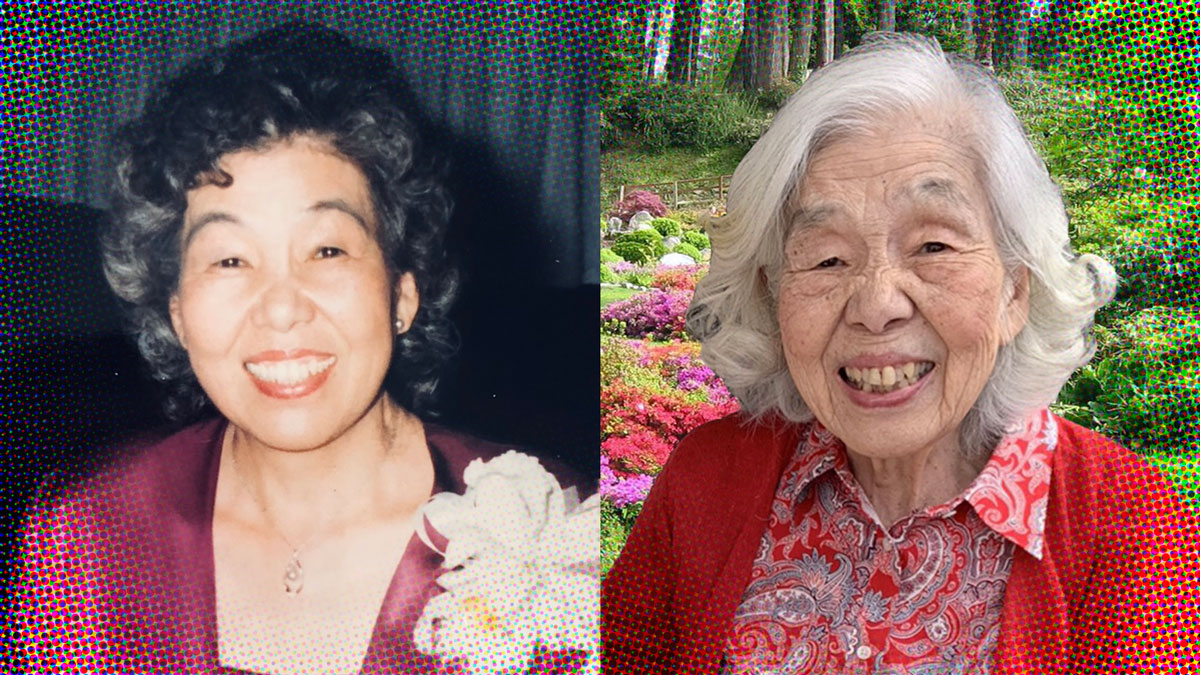A while back, I heard a sermon about how difficult it is to drive a car forward without a rearview mirror. The message was that our past—including all of our experiences, decisions, and relationships—guides us to move ahead smoothly. For a person with dementia, this rearview mirror breaks a little each day, until driving forward becomes impossible. It’s a cruel disease, not just for the person suffering from it, but for their family and caregivers as well.
As dharma students, my sister and I were taught that life is suffering. Caring for someone with dementia is truly difficult. Dementia took our mom from us, bit by bit. The woman we had known slowly became a stranger. The lesson of impermanence was driven into us repeatedly, as we lost pieces of the person we knew and loved, each time that we saw her.
The principle of perspective was also ever present. We were constantly navigating her altered perceptions of reality. When she asked about her long-deceased brother, we’d say he was doing fine. When she asked when she could go home, we’d say soon. When she asked why she couldn’t move back, we had stock photos of a flooded house on hand to claim they were hers. Were we lying? Yes. Were we being compassionate? Yes. Did we feel guilty? Absolutely.
Buddhism teaches compassion—but practicing compassion is difficult when you’re constantly managing crises and suffering from frustration. How could she not know it was evening and not time to wake up? How could she not understand that she couldn’t walk on a broken kneecap? How could she not recognize us? We were desperate for answers to questions that had none.
We were fortunate that our mom never became oppositional or aggressive, as many people with dementia do. For families dealing with that level of anger and resistance, the emotional toll would be even more severe. In that sense, we were lucky. There’s no manual for caregiving, and because the disease affects every individual differently, creating one would be impossible.
Buddhism emphasizes gratitude and appreciation. Because life is hard, we are better able to recognize and value the moments when it is not. Those of us who’ve cared for someone with dementia cherish the status quo. My family and I learned to truly appreciate the so-called normal days because they stood in stark contrast to the many harder ones. We learned to appreciate the present—because no matter how painful it was, worse days were always ahead. A friend and I would joke that what had felt difficult in the beginning didn’t seem so bad compared to what came later. And that spiral just kept going. My catchphrase during this time became: “If Mom is happy, we are happy.” It meant that, at least in that moment, things were okay.
Yet at every step, there was guilt. Even though we made every decision with Mom’s best interests in mind, the guilt never left. How could it? We felt guilty early on because it took us a while to fully grasp how bad things had become. (“Denial Land” is an easy place to live). And we felt guilty toward the end, because we knew that what needed to happen for this journey to end was something no one should wish for a loved one.
When our mom finally passed, both my daughter and my niece were surprised that my sister and I didn’t seem especially sad. We explained that we’d lost pieces of her over time, so our grieving had been gradual. The end, while sad, was also somewhat of a relief. It helped knowing that Mom was ready too. She would never have wanted to live like that. Dementia had taken away everything she knew, understood, and loved.
Caring for someone with dementia is difficult and complicated. By doing so, I know that I have gained more compassion, appreciation, and gratitude for all that life offers. Things can change in an instant—we all know that. And yet, every time it happens, we’re completely shocked. Dementia can happen to anyone. My mom was a woman who could sew a dress from a magazine photo—without a pattern! She was smart and vibrant.
I now fully believe in taking opportunities. No hesitations. No excuses. No waiting for a better time. Life is to be fully enjoyed while I am able. Every moment is truly something to appreciate and treasure. Caregiving for my mom was—and continues to be—her final life lesson for me.
